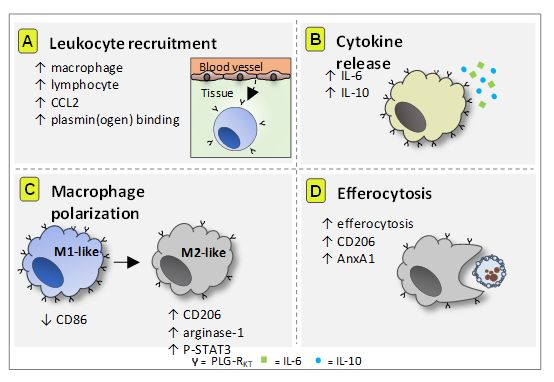The Miles Laboratory
Lindsey A. Miles, Ph. D., Associate Professor, Department of Cell Biology
Research Overview
Dr. Miles studies how interactions of proteolytic systems (specifically the plasminogen activation system) with cell surfaces modulate cellular function and how cells modulate protease systems via positive feedback mechanisms. Recently, using a proteomics approach and a monocyte progenitor cell line, Dr. Miles identified a novel protein, the plasminogen receptor, Plg-RKT, which has unique properties including a transmembrane topology with a carboxyl terminal lysine exposed on the cell surface in an orientation to bind plasminogen and stimulate plasminogen activation and is colocalized with and physically associates with the urokinase type plasminogen activator receptor (uPAR). Ongoing research employs newly developed reagents including specific function-blocking anti-Plg-RKT antibodies, region specific peptide mimetics, and Plg-RKT protein expression systems to address the role of this new plasminogen receptor in inflammation and cancer progression.
Schematic representation of the role of Plg-RKT in innate immunity. (A) Plg-RKT is required for macrophage and lymphocyte recruitment to inflammatory sites. Mechanistically, this effect is mediated by plasmin(ogen) binding and activation via Plg-RKT and by the release of the monocyte chemoattractant CCL2 (B) Plg-RKT receptor promotes the release of IL-6 and IL-10 cytokines. (C) Plg-RKT is preferentially expressed on M1-like macrophages, while during inflammation Plg-RKT decreases CD86 expression. In a similar way, Plg-RKT promotes expression of macrophage M2 markers and (D) enhances efferocytosis of apoptotic cells and promotes expression of the engulfment and recognition molecules, CD206 and AnxA1


